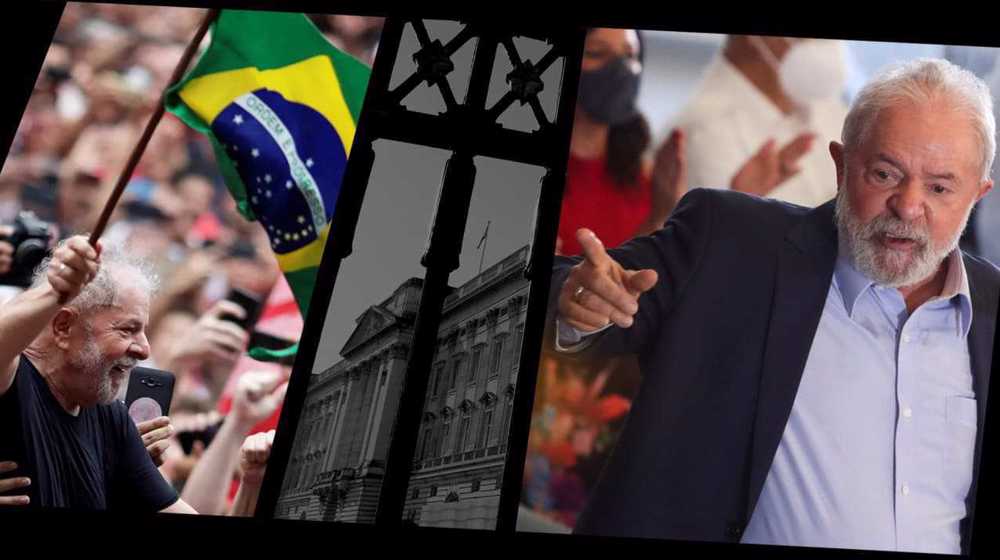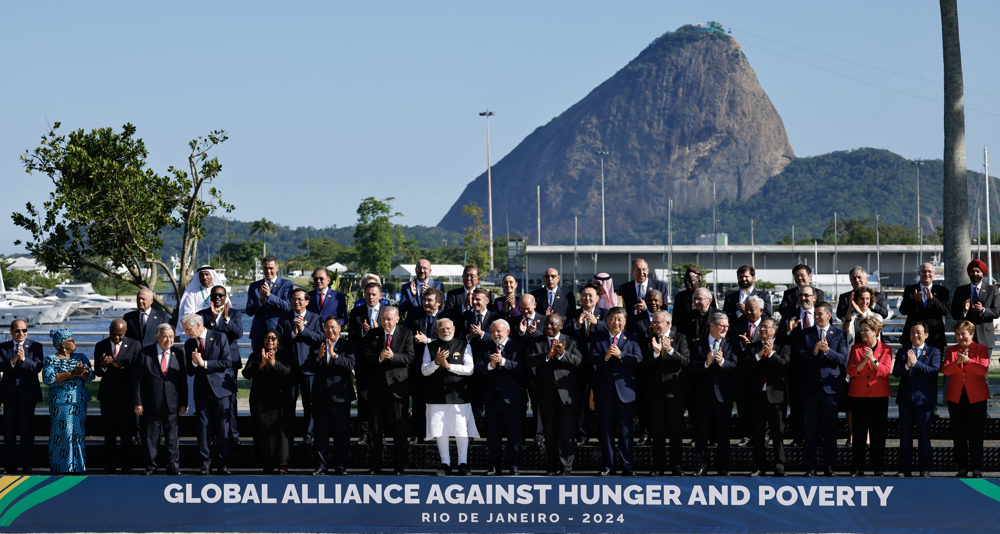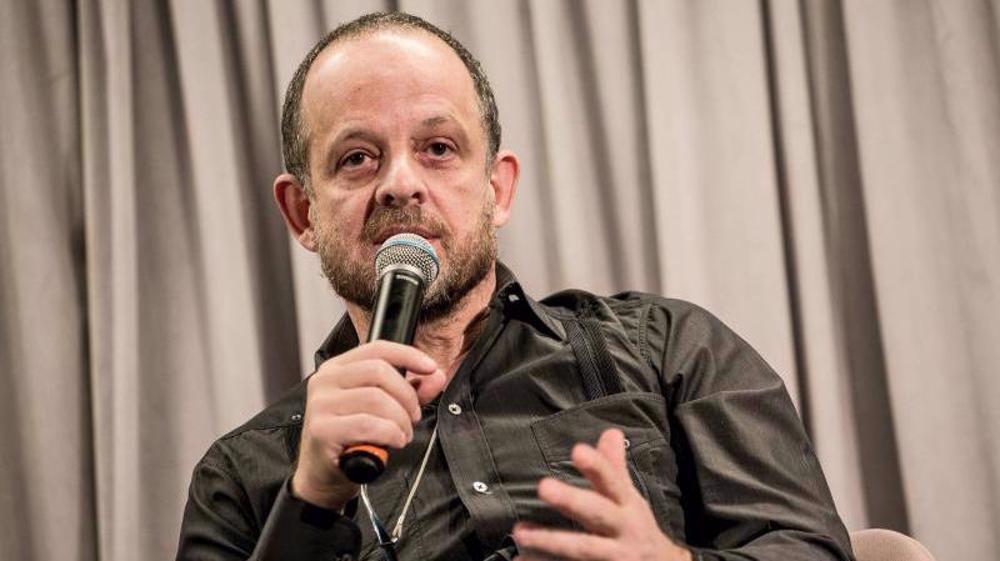Lula’s lessons for Iran before Brazil’s populist showdown begins
By Ramin Mazaheri
(Ramin Mazaheri is the chief correspondent in Paris for Press TV and has lived in France since 2009. He has been a daily newspaper reporter in the US, and has reported from Iran, Cuba, Egypt, Tunisia, South Korea and elsewhere. He is the author of ‘Socialism’s Ignored Success: Iranian Islamic Socialism’ as well as ‘I’ll Ruin Everything You Are: Ending Western Propaganda on Red China’, which is also available in simplified and traditional Chinese.)
Remember in 2010 when Brazil had “arrived”? That was Lula.
Back then, the United States and Europe were financially imploding, but Brazil — with a strong economy, fresh off the very first BRIC summit in 2009, and with the economic redistribution polices championed by Lula — was looking like a permanent and necessary geopolitical power. Their tourists were trotting the globe while Westerners were mired in bank bailouts and the undemocratic demand of austerity to pay for those bailouts.
Many of the reasons for Brazil’s economic demise since then are poorly understood, mainly because journalists prefer political intrigues to the simple math of the “dismal science.”
The imprisonment of Luiz Inacio Lula da Silva and the impeachment of his successor, Dilma Rousseff, was not solely the result of a coup — although the former head of Brazil’s Armed Forces just admitted that it was a political-military coup — because that would ignore the aspect played by Western high finance in destabilizing the Brazilian economy enough to sway popular support against the Workers’ Party.
In effect, Lula and the Workers’ Party were deposed by bankers, who essentially went on strike in order to get them out of power. It worked.
As everyone should be well-aware of after all these years, Quantitative Easing (QE) in the West was never downloaded to the people — it took coronavirus to do that. QE was re-routed into stock buybacks, fancy real estate, Van Goghs, and other asset classes of the rich, but it was also downloaded as debt traps to developing nations. Foreign direct investment into Brazil went from $31 billion in 2009 to $102 billion in 2011, all thanks to Western QE, a difference that is the equivalent of Facebook’s yearly revenue, to put the huge jump into perspective.
Crucially, this meant that the profitability of Brazilian banks at this time did not have to depend on sound domestic investments and Brazil-building, but was artificially and temporarily boosted by foreign investment.
This influx of cash to their bottom lines thus gave Brazilian bankers the ability to demand unpopular austerity measures, labor code rollbacks, and deregulations in return for lending out money to (i.e. trying to make a reasonable profit from) their fellow Brazilian businesses and citizens.
This social rollback demanded by banks in order to resume lending, of course, proved incredibly unpopular, reducing the support for Brazil’s Workers Party. This coincided with other social disasters:
The year 2013 then saw a once-in-a-half-century drought in Brazil, which caused food price inflation. That led to strikes, which further worsened the economic situation and further eroded popular support for the Workers’ Party. The year 2014 saw the global commodities shock — sparked by the “endless austerity” demand of Western bankers for the Eurozone — and foreign loans suddenly became scarcer and more onerous. That year, Rousseff won re-election by the closest margin in decades — the Workers’ Party’s popularity had been gutted from its Lula highs. The 2015 Wikileaks confirmations that the US had indeed been spying on Brazil since Rousseff took over in 2011 were drowned out by the 2014-begun “Car Wash” corruption investigations.
And thus Jair Bolsonaro was easily elected in 2018: Brazilian private media unfairly stoked blame on the Workers’ Party, the West blamed Trump’s influence, and nobody was allowed to publicly blame the moneylenders.
The role of the Brazilian military, their media, and the CIA shouldn’t be discounted, but the desire to please foreign high finance is what got Lula, Rousseff, and the Workers’ Party in trouble. The CIA may be powerful, but they don’t have $70 billion to debt-trap Brazil with — that illustrates the power of economics.
Still so sure Iran needs more foreign investment?
The bottom line is that Brazil did not strictly regulate foreign capital flows, and thus were cut by that very double-edged sword: Western QE downloaded into Brazilian bank computers meant that Brazilian bankers didn’t have to earn a remotely honest buck — foreign money allowed them to let Brazil burn in order to oust and imprison the Workers’ Party. But QE policies just made the process easier and faster — the same debt traps were used by European bankers against North African beys two centuries ago.
Western bankers would love to loan money to Iran, one of the last “untapped” markets for the West, but the Iranian government knows better — foreign capital, especially on Western neoliberal terms, is a debt trap and Brazil is Exhibit A.
The failure to grasp this is to implicitly believe that these same foreign creditors, who so drastically altered Brazil’s domestic social and political balance, would be loaning to actually help Iran? No, their goal is the same: to squeeze Iran dry via usurious credit rates and schemes; to pull out their loans prematurely for any number of reasons, leaving Iranian debtors and their projects in the unfinished lurch, to take control of Iran’s social and political balance.
If this analysis sounds unusual, it’s because a skeptical analysis of foreign investment is never broached in the neoliberal West, where foreign investment is always, absolutely, 100%, totally a positive thing. An analysis like this will never be in The Economist, The New York Times, or a “blue check” Twitter feed. For them, Brazil’s economic problems are entirely due to domestic “mismanagement” or the “corruption” of Brazilians, not that of Western bankers. For myself, however, Brazil’s problems are mostly the result of what I call the “bankocracy” which has become the vanguard party of Western society post-2008.
People who clamor for Iran to “open up” economically and be flooded with foreign loans should closely examine how “unarrived” Brazil is now.
Re-enter Lula to ‘re-arrive’ Brazil?
Brazil’s Supreme Court has annulled the criminal convictions against Lula, and he’s sure to challenge Jair Bolsonaro in the 2022 presidential election.
Lula’s image as a staunch leftist is rather overrated in the West.
He is not as economically leftist, as anti-Western capitalism and as anti-foreign finance as Iran’s politicians — just look at all the foreign investment he let in (and, crucially, allowed to be easily withdrawn), or just look up his vice-president.
We can fairly say that the Workers’ Party success ultimately came down to high commodity prices.
Had the Workers’ Party developed systemic institutional changes — like the Chavistas have done with just-enough success in Venezuela — then their party’s popularity would not have crumbled so easy in the face of such obvious Deep State & high finance meddling, no? The Workers’ Party handouts to the poor are necessary and good, but were only temporary guarantors of support. Indeed, the ability of the Chavistas to remain popular amid an ever-heightening Western sanctions onslaught should be quite telling about the deep ideological and systemic differences between Lula and Hugo Chavez.
Therefore, Brazil’s 2022 election is not a “left-right” matchup at all.
It is a matchup of “left populism” versus “right populism”. It will be the world’s first major example of an established semi-leftist politician taking on a “Trumpian” incumbent. (The 2020 US election does not apply here as Joe Biden is not semi-leftist in the slightest.)
Bolsonaro is no Michel Temer, Lula’s successor who hilariously had a 4% approval rating. Bolsonaro has rallied Brazil’s conservatives similarly to Donald Trump — by tapping into the totally justified domestic anger towards Western-led, failed, Brazil-destroying, neo-globalisation/bankocratic imperialism.
He has a solid 30% base which embraces his fascistic, ardently anti-socialist unifying of corporate and military power, as evidenced by his recent appointment of a military man to head Petrobras, the national oil conglomerate. Whom did he fire? One of Latin America’s detested “Chicago Boys”, a University of Chicago-educated economist. So, perhaps we shouldn’t complain too much, but such “one step forward, three (four?) steps back” is the dilemma posed by these 21st century, done-with-globalization, “Trumpian” conservatives.
Brazil in 2022 will thus provide the world with the most modern bellwether of the state of the mainstream and non-revolutionary political struggle — it will be modern Trumpian conservatism versus a leftism which is very far from revolutionary.
Places like China, Iran, Vietnam, Cuba, Venezuela and a few others should be interested, certainly, but perhaps not overly hopeful.
However, Brazil was the only one of the three major Latin American powers with major ties to China, adding a key geopolitical dynamic. Could Beijing provide the stability a re-elected Lula would need? Protecting mighty Brazil is a major project for anyone, including China.
China tapped Iran as the main node for their Belt and Road Initiative because these are two revolutionary cultures — Lula and the Workers Party, do they qualify? In the West many would answer “yes”, but a clear-eyed analysis says “not yet”. I highly doubt Beijing thinks conditions are favorable to hugely aid Brazil when they haven’t even done that for Venezuela - I think Brazilians are on their own for this one.
The US never did see the media-guaranteed street battles between their “right-populists” and center-right “liberals”, but Brazil isn’t so far to the right and so historically politically apathetic as they are in the United States. The arrival of jail-hardened Lula may lead to Venezuelan-style politics and a shift in Latin American — and thus human — history.
(The views expressed in this article do not necessarily reflect those of Press TV.)
Hamas thanks Iran, Resistance Front following achievement of ceasefire in Gaza
'Capitulation': Israeli officials and media concede Gaza defeat as truce unfolds
'Gaza has won': Social media users react to ceasefire with mix of relief, joy
Iran seeks South Korea’s assistance for AI, fiber-optic projects
VIDEO | Iran's 'Eqtedar' (Power) maneuver
Israel hits HTS military target in Syria for 1st time since fall of Assad
VIDEO | Press TV's news headlines
Israel has slaughtered 13,000 students in Gaza, West Bank











 This makes it easy to access the Press TV website
This makes it easy to access the Press TV website